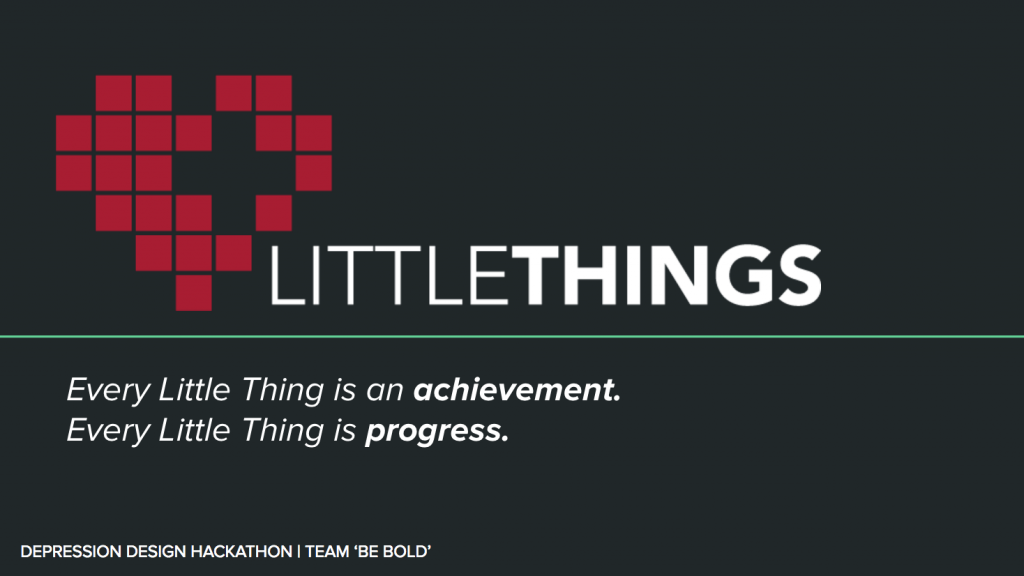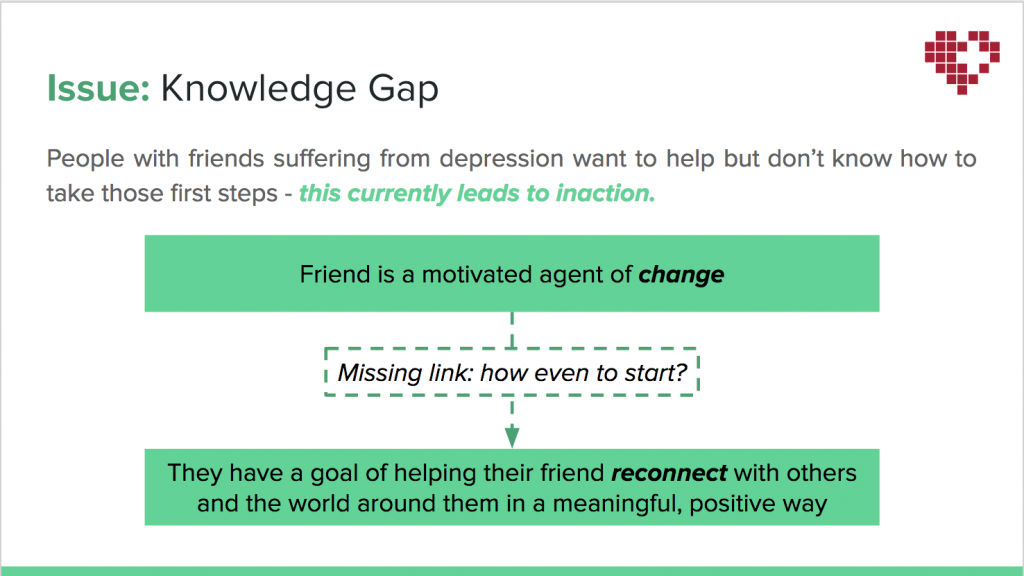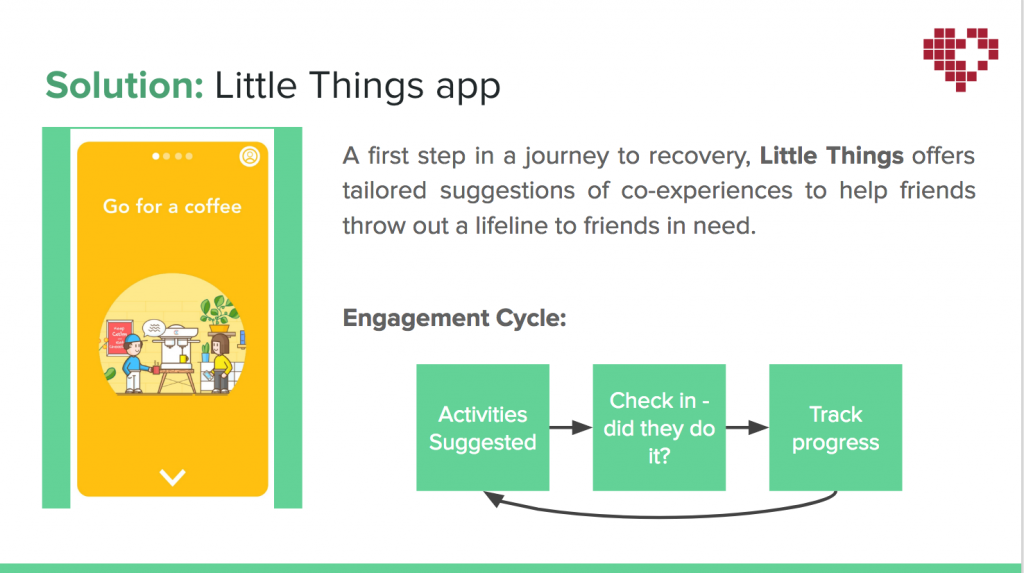
Initially, the prospect of designing a project in under 48 hours, especially alongside working professionals, slammed every single WARNING!!! button on my internal anxiety keyboard. Ironically, the fact that the topic we were addressing was so near and dear to my heart made the task of participating in the Hackathon even more daunting – I wasn’t sure what sort of social landscape I was stepping in to, and even though our intention was to help to alleviate the problem, the best laid plans of mice and men often go awry.
This past semester my depression and anxiety got bad enough that I needed to go on medication.
Even with the augmented treatment, not a week went by that I wasn’t sitting alone in my bathroom, contemplating ending my life. The triggers for those foul moments were wildly varied – sometimes it was just that I fumbled a cup and almost broke it, sometimes it was the overwhelming feeling of helplessness and paralyzing fear of failure, or the very poignant, pressing realization that the less and less I did my schoolwork, the more and more I fell behind, and the more and more buried beneath the overdue assignment I became. Vicious isn’t even a strong enough word to describe the volatile cycle that I fell in to.
Depression is a cyclical illness, especially when it’s clinical – it is a constant battle to remain above the water, not just for me, but for many, many other people. Though at this moment, in London, immersed in culture and surrounded by peers who are caring, considerate, curious and engaged, my symptoms have been subdued, the topic of depression is still one that pings the fragile parts of me and puts me on edge. From the first moment of seeing the timeline laid out along the walls of Big Radical’s office, the noted moments and symptoms were an unwelcome reminder of the affliction that hounds my every step, and I was fearful I would be grouped with people who would understand the topic or approach it in the way I felt it needed to be approached.
Though the product in question wasn’t being designed for me – the ‘Rob’ of the Personas, the Depressed Friend – I knew that as a sufferer (an inflicted person? To this day, admitting that I am perpetually ill still feels bizarre, and for all my learning on the topic I don’t feel fully confident I handle it with the most delicacy) I had insight into what actions might be overbearing or upsetting when used as ‘treatment’ or ‘help’ from someone who failed to understand the state of mind someone who suffers from depression often falls in to.
I am elated to report that was not at all the case. My group understood the issues at hand, an were united in our feelings of how a product designed to target mental health should function. Especially in the regard of ‘gameification’, we were unified in our belief that ‘gamifying’ an app that was meant to appeal to, or be a tool for, a neurotypical friend felt exploitative and cruel, and overall just sort of… uncomfortable.
Given how important cognitive behavioral training is in treating those who suffer from mental health issues, it seemed reasonable, and simple, frankly, that applying the same sort of treatment to those around a mentally ill individual would net positive results. By empowering a friend who has the desire to help with tangible methods and tools, it would bridge the current knowledge gap and hesitation that halts many people from assisting those they know are suffering.

With that in mind, we developed LittleThings, named for the idea that all it takes is a small action to make a mighty impact on those who suffer from mental health issues. Much like anyone can apply first aid before having to call in the professionals, LittleThings functions as a sort of social first aid that seeks to enable the user to engage with and aid their depressed friend by suggesting safe, accessible activities for them to share in.

Activities range from benign and almost effortless – such as watching a movie together at home – to tangibly useful – such as doing a load of laundry, or washing the dishes. The key idea behind the activities – or ‘challenges’, as they’re referred to in theory – is that they are manageable, specific, action-orientated, and time-limited.

While our presentation to the group suffered from minor snafu’s, in the end, we were all exceedingly proud of the work that we did!
